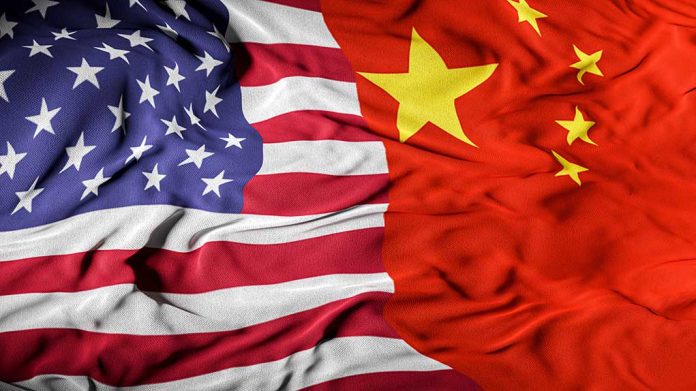
China threatens “severe measures” after Defense Secretary Pete Hegseth warns a Chinese invasion of Taiwan could be imminent, heightening the already dangerous standoff between the United States and the communist regime.
Key Takeaways
- Defense Secretary Pete Hegseth warned that Chinese military action against Taiwan “could be imminent” during the Shangri-La Dialogue in Singapore
- China’s Ministry of Foreign Affairs accused the U.S. of promoting a “cold war mentality” and undermining regional stability
- The Trump administration is taking a hardline stance on China, including plans to revoke visas for Chinese students with CCP connections
- Ongoing trade disputes between the U.S. and China have intensified, with China restricting access to critical minerals
- Military activities in the South China Sea have increased from both Taiwan and mainland China
Hegseth’s Warning Escalates U.S.-China Tensions
Defense Secretary Pete Hegseth delivered a stark warning at the Shangri-La Dialogue security summit in Singapore that has sent shockwaves through diplomatic channels. Hegseth explicitly stated that Chinese military action against Taiwan “could be imminent,” highlighting growing concerns within the Trump administration about Beijing’s increasingly aggressive posture in the region. The Defense Secretary’s comments reflect a significant hardening of the U.S. position as President Trump’s new cabinet takes shape and implements a more assertive approach toward China than previous administrations.
“China seeks to intimidate you in your own waters. China’s military harasses Taiwan,” said Pete Hegseth, during his address at the security forum, directly challenging Beijing’s regional behavior.
China’s Furious Response
Beijing wasted no time in condemning Hegseth’s remarks, with China’s Ministry of Foreign Affairs issuing a blistering rebuke that accused the Defense Secretary of deliberately stoking regional tensions. The Chinese government characterized Hegseth’s comments as promoting a dangerous “cold war mentality” that threatens the stability of the entire Asia-Pacific region. Beijing continues to maintain that Taiwan is an internal matter and that American interference represents a violation of Chinese sovereignty, a position that the communist regime has consistently held despite Taiwan’s democratic governance.
“China urges the U.S. to fully respect the efforts of countries in the region to maintain peace and stability, stop deliberately destroying the peaceful and stable environment cherished by the region, and stop inciting conflict and confrontation and escalating tensions in the region,” according to China’s Ministry of Foreign Affairs.
The sharp exchange highlights the precarious nature of the U.S.-China relations under the Trump administration, which has prioritized confronting Chinese economic and military expansion. While the United States does not formally recognize Taiwan diplomatically, it has maintained a longstanding commitment to the island’s defense capabilities, a position that Beijing views as interference in its internal affairs. This policy contradiction has created an increasingly volatile situation as China ramps up military exercises near Taiwanese airspace and waters.
Trump’s Multipronged Approach to China
President Trump’s administration is implementing a comprehensive strategy to counter Chinese influence across multiple fronts. Secretary of State Marco Rubio recently announced plans to revoke visas for Chinese students with connections to the Chinese Communist Party or those studying in critical technological fields. This move represents a significant shift in U.S. policy and reflects growing concerns about Chinese espionage and intellectual property theft at American universities and research institutions. The visa restrictions align with broader efforts to protect U.S. technological advantages and national security.
“We do not seek regime change, nor will we instigate or disrespect a proud and historic culture. We will be ready, but we will not be reckless. Instead, we seek peace. But we must ensure that China cannot dominate us—or our allies and partners,” said Pete Hegseth.
Simultaneously, trade tensions between Washington and Beijing have intensified, with previous agreements to lower tariffs stalling. President Trump has accused China of violating trade agreements, while Beijing has criticized U.S. export controls in the semiconductor industry as economically coercive. Treasury Secretary Scott Bessent has expressed optimism about resolving these trade disputes but acknowledged China’s concerning practice of restricting access to critical minerals needed for advanced technology manufacturing, highlighting the economic dimension of this strategic competition.
Military Posturing in the South China Sea
The verbal sparring between Washington and Beijing comes amid increased military activities in the South China Sea. Both Taiwan and mainland China have enhanced their military presence in the region, with Chinese naval and air forces conducting regular exercises that Taiwan views as intimidation tactics. These military maneuvers have raised alarms about the potential for miscalculation or unintended escalation that could trigger a wider conflict. Defense analysts note that the frequency and scale of Chinese military drills near Taiwan have increased substantially over the past year.
The situation represents one of the most significant foreign policy challenges facing the Trump administration, as it balances deterrence of Chinese aggression with avoiding direct military confrontation. Hegseth’s warning that Chinese action could be “imminent” suggests U.S. intelligence may have detected preparations or movements by Chinese forces. The Defense Secretary’s unusually direct language suggests the administration sees the threat as more urgent than previously acknowledged in public statements, marking a departure from the more measured diplomatic language typically employed in discussions about Taiwan.



